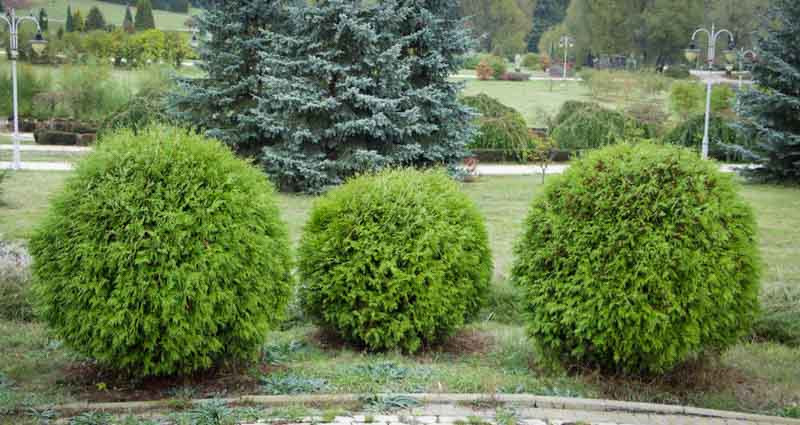American Arborvitae: Versatile Evergreen for Elegant Gardens
American Arborvitae (Thuja occidentalis), also known as Eastern Arborvitae or Northern White Cedar, is a widely popular evergreen tree in the cypress family.
Species: Thuja occidentalis is one of several species in the genus Thuja and is highly valued for its ornamental and practical uses.
Native: Native to North America, particularly the northeastern United States and southeastern Canada, it thrives in a variety of climates and is a staple in many landscapes across the region.
Habit: American Arborvitae features diverse habits across its cultivars, ranging from tall, pyramidal forms ideal for hedges to compact, globe-shaped varieties perfect for small spaces and accent planting.
Hardiness: American Arborvitae is hardy in USDA zones 2 through 7, showing a remarkable ability to withstand cold winters. It adapts well to various environmental conditions but thrives best in cooler climates.
Foliage: The tree boasts dense, scale-like leaves that are rich green in color. The foliage remains vibrant throughout the year, even in winter, providing consistent visual interest. Some cultivars offer golden foliage or more compact growth forms.
Uses: Its versatility makes it a favorite for hedges, privacy screens, windbreaks, and foundation plantings. The tree is also commonly used as a specimen or decorative plant in gardens and public spaces. Dwarf varieties are popular in smaller gardens or as container plants.
Benefits: Apart from its aesthetic appeal, Thuja occidentalis is low-maintenance, offering year-round privacy and wind protection. It supports local wildlife, providing shelter and nesting sites for birds.

